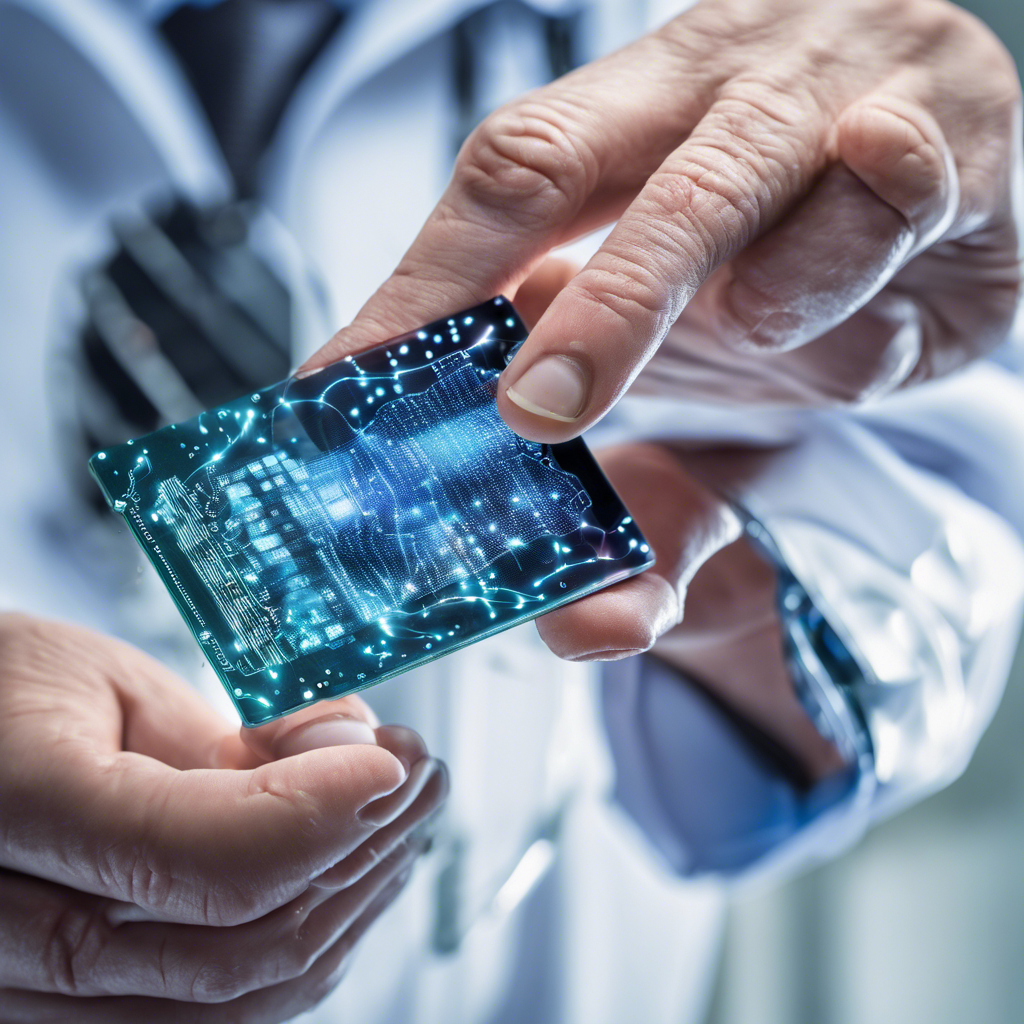Advancements in Soft and Flexible Electronics Revolutionize Healthcare Monitoring

Soft and Printed Microelectronics (SPM) Laboratory in Coimbra, Portugal pioneers the development of flexible electronics that mimic human skin, revolutionizing healthcare monitoring.
In the heart of Coimbra, Portugal, the Soft and Printed Microelectronics (SPM) Laboratory is making remarkable strides in the field of flexible electronics. Led by Dr. Alireza Abbaspourrad, this innovative team is dedicated to creating a new generation of electronics that are as pliable as human skin. By utilizing ultrathin polymers and a stretchable, gallium-based electroconductive ink, they are pushing the boundaries of what is possible in the realm of healthcare monitoring. Their groundbreaking work has the potential to transform the way patients are monitored in hospitals and provide them with greater autonomy during their recovery process.
Enhancing Patient Autonomy with Stretchable Circuits
Last June and July, the SPM laboratory conducted a clinical pilot test at the Hospital of Coimbra, focusing on patients who had recently undergone surgery and required 24-hour monitoring. The team developed e-patches using their flexible electronics technology, enabling the monitoring of vital signs such as heart rate, respiration rate, brain activity, body temperature, and blood oxygen levels. These stretchable circuits, attached to the patient’s skin, transmit data via Bluetooth to a computer, which then sends the information to software accessible to the medical team. This real-time monitoring allows for prompt intervention and potentially reduces hospital stays, granting patients greater autonomy and the opportunity to recover in the comfort of their own homes.
The Future of Soft Electronics: Internal Organ Monitoring
While the SPM laboratory has made significant strides in external monitoring devices, their vision extends beyond the skin’s surface. Dr. Abbaspourrad and his team are currently working on developing soft electronic devices capable of monitoring internal organs. Traditional electronic devices are rigid and invasive, posing significant challenges when it comes to monitoring delicate organs. However, the potential of soft, miniature robots that can navigate the gastrointestinal tract to capture images, collect data, or administer targeted drug delivery without causing harm to tissue is an exciting prospect. This cutting-edge research holds the promise of revolutionizing diagnostic procedures and treatment methods, ultimately improving patient outcomes.
The Journey of Dr. Alireza Abbaspourrad
Dr. Alireza Abbaspourrad’s passion for electronics and materials began during his childhood in Iran. Inspired by his engineer father, who nurtured his curiosity by providing electronic kits, Abbaspourrad quickly developed a knack for repairing broken radios and TVs. This early exposure to the world of electronics laid the foundation for his future endeavors in the field. In 2015, he established the SPM lab in Coimbra, Portugal, at a time when soft technology was still in its infancy in Europe. Recognizing the immense potential of this emerging field, Dr. Abbaspourrad secured a €2.8 million (US$3.1 million) grant from the European Research Council in 2020. This funding allows the SPM lab to embark on a five-year project focused on developing a 3D printer capable of producing soft machines, including sensors, actuators, and batteries.
Collaboration and Expertise at the SPM Lab
The SPM lab comprises a diverse team of 15 researchers, each bringing their unique expertise to the table. With backgrounds in electronic, chemical, mechanical engineering, physics, and even digital art, this interdisciplinary team collaborates to push the boundaries of what is possible in the realm of flexible electronics. Dr. Abbaspourrad’s role as the glue that binds this diverse group together is crucial in fostering a collaborative and innovative environment.
Conclusion:
The Soft and Printed Microelectronics (SPM) Laboratory in Coimbra, Portugal, is at the forefront of the revolution in flexible electronics. Led by Dr. Alireza Abbaspourrad, this visionary team is pushing the boundaries of what is possible in healthcare monitoring. Their stretchable circuits and e-patches provide patients with greater autonomy and potentially reduce hospital stays. Looking ahead, their research into soft electronic devices for internal organ monitoring holds immense promise for transforming diagnostic procedures and treatment methods. With a strong foundation of collaboration and expertise, the SPM lab continues to pave the way for the future of flexible electronics in healthcare.

